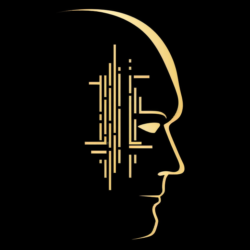The End of Pre-Packaged Software
Satya Nadella, CEO of Microsoft, recently remarked that the era of proprietary “pre-packaged” software could come to an end. This predicts a future where custom AI agents replace traditional software by delivering tailored solutions virtually on-the-fly that meet our needs dynamically and precisely.

Limitations of Traditional Software
For decades, pre-packaged software has been the backbone of personal and professional productivity. From spreadsheets to photo editing tools, these programs were designed to cater to the broadest audience possible, providing a one-size-fits-all solution. However, this approach inherently comes with limitations: unnecessary features for some users, missing functionality for others, and inflexibility in adapting to unique workflows.

The Rise of AI-Driven Solutions
The exponential increase in capability of artificial intelligence promises to change this landscape fundamentally. Imagine AI agents that can learn from your behaviour, adapt to your preferences, and seamlessly integrate with your specific workflows. These agents would effectively act as bespoke software developers, crafting solutions on the fly to address your requirements.

A New Era of Customisation
Here’s an example: instead of relying on a traditional project management tool with fixed features, your AI agent could create a customised dashboard that evolves based on your project’s progress, the team’s needs, and external factors. It could integrate data from disparate systems, provide real-time insights, and even automate repetitive tasks without requiring you to switch between multiple applications.

Democratising Technology Through AI
This shift could further democratise access to technology. Today, developing software tailored to a niche audience or specific use case often requires significant investment, putting it out of reach for many. AI agents, however, could make customised solutions available to individuals and small businesses at a fraction of the cost, levelling the playing field.

Challenges and Questions to Address
Of course, this transformation raises new challenges and questions. Who owns the data these AI agents learn from? How do we ensure that AI-generated solutions are secure and trustworthy? What happens to the developers and industries built around traditional software? These are critical issues we must address as we move toward this vision.
Gradual Transition to AI-Driven Tools
The transition from pre-packaged software to custom AI agents won’t happen overnight. It will likely be gradual, with traditional software coexisting alongside AI-driven solutions for years to come. But as AI becomes more advanced and accessible, the scales will tip in favour of personalised, dynamic tools that align perfectly with individual and organisational needs.
A Future Beyond Imagination
The potential horizon is extraordinary. If AI agents can truly replicate and surpass the functionality of today’s software, we may find ourselves in a world where technology is not just a tool but a collaborator—working alongside us, learning with us, and evolving to meet our needs in ways we’ve only begun to imagine.

Leave a Reply